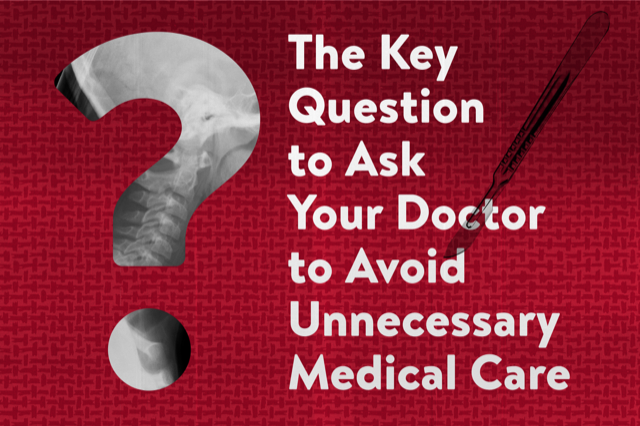The Key Question to Ask Your Doctor to Avoid Unnecessary Medical Care
There's an epidemic of overtreatment in the United States - and it's costing us. Patients can be protected if they are properly prepared.
My friends often contact me when they need help choosing a good doctor. In Jeff’s case, he reached out because he thought he needed spine surgery to help with severe neck pain.
There’s little public data about the quality of surgeons, but I helped Jeff by backgrounding the spine surgeons in his community. I also gave him a warning: Spine surgery may not …
Keep reading with a 7-day free trial
Subscribe to Marshall Allen Project to keep reading this post and get 7 days of free access to the full post archives.



